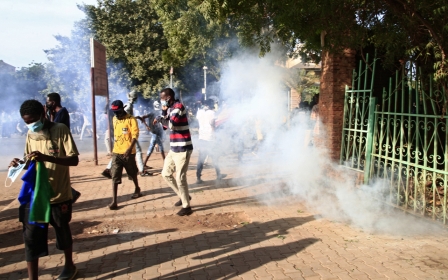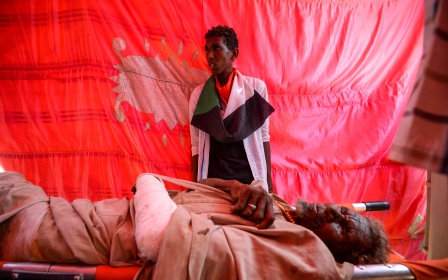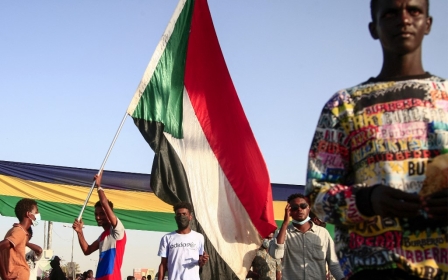Sudan coup: The turbulent times of Abdalla Hamdok

Abdalla Hamdok, 65, who resigned as Sudan's prime minister on Sunday, has faced a turbulent time in office over the past two and a half years.
Born on 1 January 1956 in Al Dibaibat, in South Kordofan, he completed an undergraduate degree at the University of Khartoum and a doctorate in economic studies from the University of Manchester.
During the 1980s, he worked as a senior official in the Sudanese Ministry of Finance and Economic Planning.
Before working for the UN, most recently as deputy executive secretary of its Economic Commission for Africa from 2011 to 2018, he worked for Deloitte & Touche, the International Labour Organisation in Zimbabwe, and as an economist at the African Development Bank in Ivory Coast.
In September 2018, Hamdok was named as minister of finance under then Sudanese President Omar al-Bashir but refused the nomination.
New MEE newsletter: Jerusalem Dispatch
Sign up to get the latest insights and analysis on Israel-Palestine, alongside Turkey Unpacked and other MEE newsletters
Following the overthrow of Bashir in April 2019, Hamdok became prime minister in August of that year.
Below Middle East Eye outlines some of the key moments during his premiership:
August 2019: Becomes prime minister
Hamdok becomes prime minister on 21 August 2019, after civilian and military factions agreed to share power in a three-year transition with elections scheduled for 2023.
A council of ministers is also formed under Hamdok.
December 2019: Visits United States
Hamdok arrives in the US on 1 December 2019 with a high-level Sudanese delegation to discuss lifting US and UN sanctions against Sudan.
He meets with representatives of the White House and CIA, along with the president of the World Bank and a number of Sudanese communities in the US.
March 2020: Assassination attempt
Hamdok survives an assassination attempt targeting his convoy in the capital Khartoum on 9 March 2020.
The prime minister says he is in "good shape" and that what had happened would be "an additional push to the wheel of change in Sudan".
September 2021: Coup thwarted
On 21 September, Khartoum announces that it has thwarted a coup against Hamdok's government attempted by civilian and military plotters linked to Bashir’s former government.
October 2021: Military coup
On 25 October, military leader General Abdel Fattah al-Burhan - the de facto leader since Bashir was removed - dissolves the government, arrests the civilian leadership, and declared a state of emergency.
Hamdok is placed under house arrest after he refuses to support the coup.
November 2021: Reinstated as prime minister
Hamdok announces he has been reinstated as prime minister under an agreement signed with Burhan which allows the release of all political detainees after weeks of deadly unrest triggered by the coup.
Hamdok, who will lead a civilian government of technocrats for a transitional period, says he had agreed to the deal to stop the bloodshed.
But the civilian coalition that shared power with the military previously says it opposes any talks with the "putschists" and calls for protests to continue.
January 2022: Resigns as prime minister
Hamdok announces his resignation on 2 January just hours after the killing of two protesters brought the death toll since the start of Burhan's military coup to 56.
Hamdok's agreement with Burhan failed to quell mass anti-government protests on the streets of Khartoum, which have continued against both Hamdok and the military.
Many protesters who previously saw Hamdok as a symbol of civilian resistance to military rule have denounced the deal as a betrayal, leading at least in part to his resignation.
Middle East Eye delivers independent and unrivalled coverage and analysis of the Middle East, North Africa and beyond. To learn more about republishing this content and the associated fees, please fill out this form. More about MEE can be found here.




